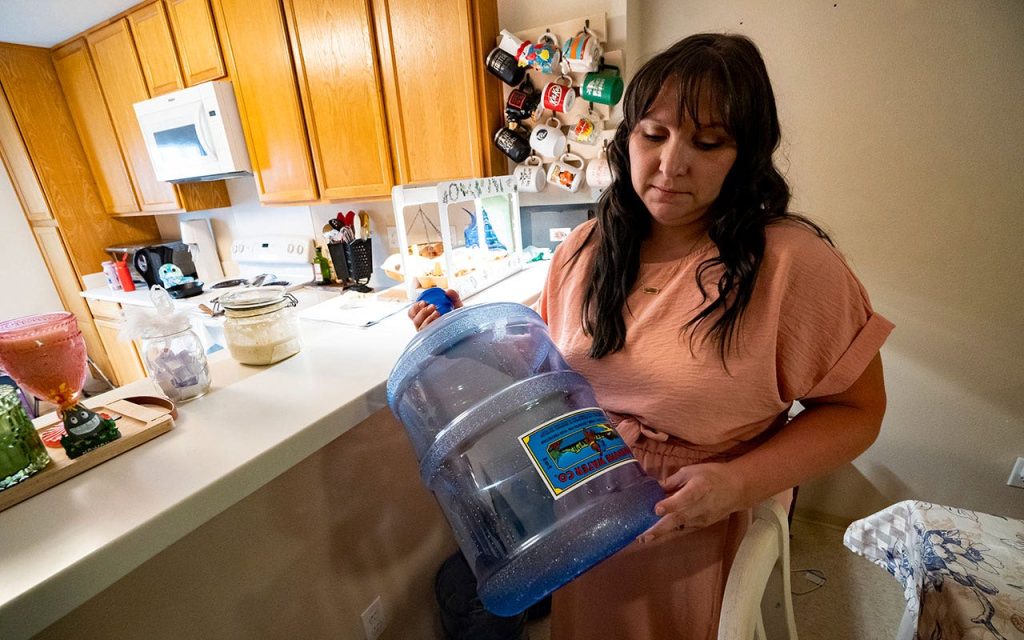Richelle Dietz, a mother of two and the wife of a U.S. Navy officer stationed in Honolulu, is among 17 people suing the U.S. government for health problems allegedly linked to a jet fuel leak in 2021. The family, stationed in Honolulu, spends more than $120 a month on bottled water for drinking, cooking, and cleaning, as well as showerhead and sink filters. The children carry bottled water upstairs to brush their teeth each night to avoid vomiting, diarrhea, rashes, and other ailments, which they began experiencing in 2021 when jet fuel leaked into the Navy water system serving 93,000 people on and around the Pearl Harbor base. The government has admitted liability but disputes the extent of exposure and resulting health issues.
The lawsuit has brought together 17 relatives of U.S. military members, known as “bellwether” plaintiffs, representing over 7,500 other military family members, civilians, and service members in three federal lawsuits. The trial, which is set to start soon, will help determine the success of other cases and the damages that could be awarded. Although the U.S. government has admitted liability in court documents, they dispute the plaintiffs’ claims of high levels of jet fuel exposure causing their health problems, such as seizures, memory loss, anxiety, eczema, and asthma. The outcome of this trial will have a significant impact on the other cases.
The Dietz family arrived in Hawaii in February 2021, expecting to live in paradise. However, after the jet fuel leak in Thanksgiving 2021, they began experiencing stomach pain, vomiting, diarrhea, and rashes. The water smelled of fuel and had an oily sheen, causing them concern. The trial will examine allegations that Navy officers failed to warn residents about the fuel in the water, and even maintained that staff members were drinking the water. The tanks sit above an aquifer that delivers water to 400,000 people in urban Honolulu, making the issue a significant concern for the broader community.
The fuel storage tanks have long been controversial in Hawaii, with Native Hawaiians and residents expressing concerns about leaks that could affect the water supply. The Navy initially struggled to determine how the petroleum entered the water, eventually linking it to a series of errors leading to a spill of 21,000 gallons of fuel. The Dietz family chose to stay in Hawaii, committed to avoiding tap water while they sought a resolution. When they felt abandoned by the military, Native Hawaiians stepped in to support them, forging solidarity and relationships within the affected community.
Under pressure from state officials, public outcry, and ongoing protests, the military eventually drained the tanks. Richelle Dietz’s husband has received new orders, and the family is relocating to Jacksonville, Florida, this summer. They do not plan to live in military housing there. As they prepare to leave their current home, Dietz hopes that the trial will raise awareness of the water contamination issue, ensuring that future residents are made aware of the potential risks. The support from Native Hawaiians and the military community has been crucial in navigating this challenging situation.


